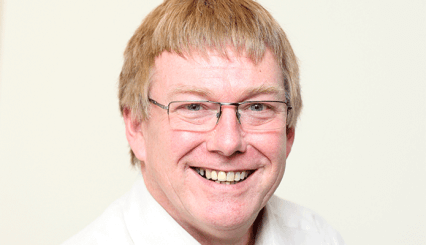Black Lives Matter – one year on at Dimensions
…why treating people equally does not mean treating people the same
This time last year I wrote to my colleagues in the wake of the tragic death of George Floyd and the Black Lives Matter movement that grew up in response. I emphasised that at Dimensions we value all our colleagues equally, not despite their differences, but because of them. Whilst I was able to share this short film I also listed a number of our shortcomings. In particular, like many others, the lack of ethnic diversity within Dimensions’ leadership. We were already following the Business in the Community Race at Work charter, but we had yet to really understand what more could we do to help achieve meaningful improvement.

One year on it feels different – and I hope those looking in from the outside as well as across Dimensions can spot some signs of things changing. So what we been doing?
- We’ve introduced a ‘reverse mentoring’ programme: a number of members of the leadership team, myself included, have been mentored by black and Asian colleagues through the year.
- We’ve adopted a ‘positive about diversity’ approach to recruitment: we have recently started to offer guaranteed interviews to BAME applicants who meet the essential criteria, as we have done for some time through the Disability Confident scheme.
- Where we don’t naturally have diverse recruitment panels we have started including a newly developed ‘critical friend’ role to ensure diverse representation, thought and perspective.
The most visible difference is that our Board has become more diverse and over 10% of our management positions are now filled by non-white colleagues. Whilst I’m pleased with this progress, we are not celebrating. These are just getting us toward where many would reasonably argue we should have been anyway.
And these I do celebrate. Looking forward, many positions including mine will be recruited to over the rest of this year and I hope this leads to an increasingly diverse leadership. Working with and learning from my mentor Dorothy – one of our fantastic Locality Managers – was among the most helpful personal development experiences I’ve had. I benefitted from that safe space where I could explore issues that I would describe as known unknowns and at times uncomfortably uncover what had been unknown unknowns. I’ve been really pleased to note the level of demand from senior managers – including one of our Board members – for places on our next wave of reverse mentoring.Most pleasing of all was reading a comment from my colleague Mbye – another of our reverse mentors – in our forthcoming Impact Report,
“… as a father of a child who may one day come to be supported by Dimensions, I often ask myself– could my child fit here? Do we do what we say on the tin? The answer, in my experience to date, is yes.”
I expect some people, some colleagues even, may feel that some of these measures are unfair to them – that we should simply treat everyone exactly the same and that our positive action is discrimination, pure and simple. To those people, I say that we have to recognise and accept long-standing organisational behaviour has been one reason why across the Western world the leadership of so many organisations has remained white and male.
We don’t do it deliberately. We don’t want to do it. But unconscious bias is a powerful force and positive action acts as an effective counterbalance.The theme of this blog is a paradox – if we want to treat everyone equally then we shouldn’t treat everyone in the same way.



